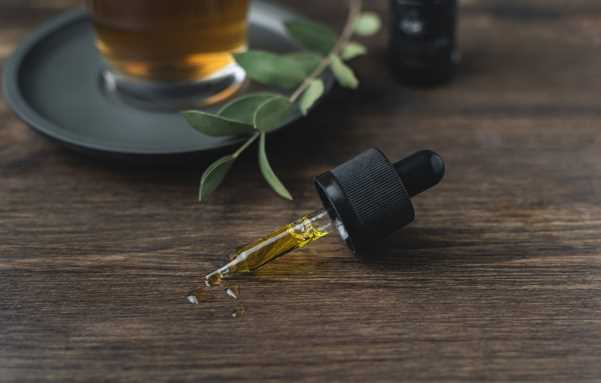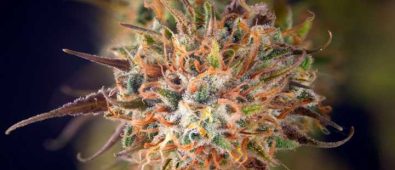There has been a huge influx of new products in the cannabis industry since the legalization of hemp at federal level in 2018. While most of these products do not have psychoactive effects, some may contain cannabis derivatives that have a similar molecular structure to THC, a psychoactive cannabinoid.
Though THC-O is not a mainstream cannabinoid, it has become insanely popular among cannathusuasts. This relatively new cannabinoid is purportedly thrice as strong as THC, the primary psychoactive constituent of cannabis that produces a ‘high’. Despite the novelty of THC-O, its popularity has skyrocketed in U.S. states where the use of cannabis for recreational purposes is legal.
Farm Bill 2018
The Farm Bill of 2018 has inadvertently and indirectly opened a window for manufacturers to create more products that contain cannabinoids with psychoactive effects, such as THC-O or THC-O acetate. Many CBD brands have commercialized THC-O products in the last few years. The legal status of THC-O is somewhat vague as it is not extracted from hemp like CBD, CBG, or CBN. However, its psychoactive properties call its legality into question.
Most THC-O products on the market were launched following the Farm Bill of 2018. Due to different interpretations of Farm Bill’s provisions, THC-O is neither deemed completely legal nor illegal. However, the long-term use of THC-O products can lead to both medical and legal issues.
From varsity stoners to consumers of medical cannabis, the promise of a cannabinoid three times stronger than THC is a blessing. Nonetheless, it’s debatable whether or not THC-O can work as a potent variation of THC, CBD, or other cannabinoids. While some patients may consider it for its mind-bending effects, it has not been deemed medically safe.
Here’s all you need to know about this powerful borderline psychedelic derivative of cannabis:
What is THC-O? THC-O or THC-O acetate is a psychedelic derivative of cannabis that is synthesized through a chemical process that involves acetic anhydride, a highly inflammable, colorless liquid with a vinegar odor used as a dehydrating agent to make dyes, explosive, fibers, plastics, and pharmaceuticals.
Chemically, THC-O is an ester of THC. It is a synthetic analog of THC which means it cannot be obtained from the cannabis plant. While THC-O has a similar chemical structure to other cannabinoids, it does not occur naturally. Instead, it is manufactured with specialized equipment and modern cannabis tech.
The production process of THC-O involved a series of extractions. First, cannabidiol (CBD) is from the hemp plant containing less than 0.3% THC. After that, delta-8 THC is extracted from the cannabidiol (CBD). Finally, acetic acid is added to delta-8 THC molecules to produce THC-O.
In the last step, all terpenes and flavonoids are removed from THC molecules and a flavorless, odorless, and motor oil-thick isolate of THC with a polarizing potency is left behind. Rso oil for sale is the best product for you.
The acetylation (addition of acetate anhydride) does not alter the properties of THC as THC is already high lipophilicity, a tendency to combine with or dissolve in lipids. However, the compound’s potency increases to a great extent which is why your body takes more time to metabolize THC-O.
THC-O VS Delta-8, Delta-9, & Delta-10
All four variations of THC have psychoactive properties. While delta-8 is known for its sedative properties, delta-8 THC provides long-lasting mind-boosting effects. THC-O, on the other hand, delivers mild hallucinogenic effects. As reported by the consumers of THC-O, the synthetic analog of THC offers a more psychedelic psychoactivity than other variations of THC.
Delta-9 THC delivers a combination of these effects – while some strains produce relaxing effects, some produce nootropic effects and boost brain performance. The effects may also vary from person to person depending on their metabolism, tolerance, genetics, and age among other factors.
All four variants of THC have different origins. While delta-8, delta-10, and THC-O are produced in a laboratory, delta-9 occurs naturally in high amounts in many cannabis plant varieties. Some cannabis strains contain trace amounts of delta-8 and delta-9 which cannot be extracted. However, THC-O is not a naturally occurring cannabinoid and is therefore not present in any cannabis cultivar.
All semi-synthetic cannabinoids have different chemical structures and boast different properties. These cannabinoids can be derived from industrial hemp, however, they are ultimately produced in a laboratory.
Unlike delta-8 and delta-9, THC-O is not an isomer of THC. It is an acetylated product of THC that is produced after an acetic acid is added to its molecular structure. The acetylation of the product is what makes it more powerful than its parent compound i.e. tetrahydrocannabinol (THC).
THC-O Legality
THC-O is considered legal as it is derived from federally legal hemp and does not contain delta-9 THC. The Farm Bill of 2018 legalized hemp, its isomers, and derivatives. However, there’s other legislation that predates the Farm Bill and calls into question the legality of both delta-10 and THC-O.
Although THC-O is derived from hemp, it is technically analogous to Schedule 1 drug. According to the Federal Analogue Act of 1986, all analogues of Schedule 1 drugs also qualify as Schedule 1 drugs which can make THC-O illegal for both medical and recreational uses. However, THC-O remains free from regulatory oversight as long as its supply chain can be traced back to federally legal hemp.
THC-O Safety
All synthetic cannabinoids represent a source of concern to medical experts. There are no clinical studies on short- or long-term effects of any of the synthetic cannabinoids, namely delta-8, delta-10, and THC-0.
Whether or not these compounds are safe for medical use depends on how they are metabolized by the liver upon ingestion or inhalation. As there are very few clinical studies on the metabolism of these cannabinoids, it’s unclear if they are safe for medical consumption. Some studies suggest that THC-O is a prodrug which needs to be metabolized before it starts producing effects.
According to anecdotal evidence, THC-O may treat chronic pain in patients that have ever-increasing THC tolerance. THC-O products can be incorporated into their treatment plans more elegantly than products with delta 9. Nevertheless, there is no scientific data to suggest THC-O is inappropriate for medical use. Similarly, there is no data to substantiate that it’s as safe as other cannabis derivatives.



